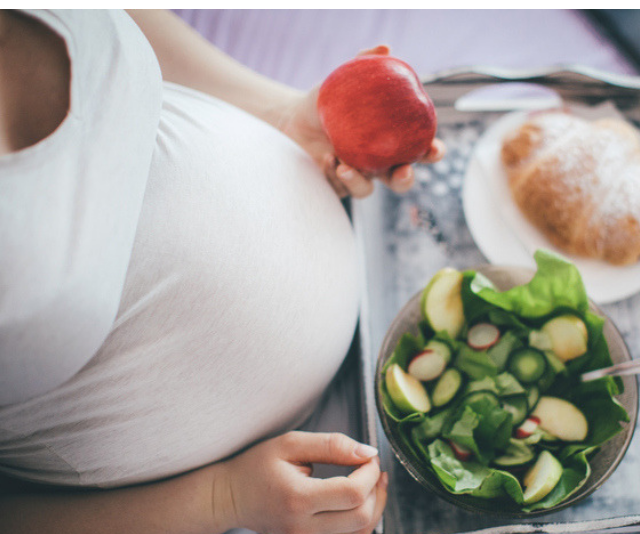Understanding weight gain in pregnancy

It's inevitable!
Weight gain during pregnancy is inevitable for the majority of women. However, for most women the concern is not so much the weight gain during pregnancy but more often the fear of not losing those extra kilos after the baby’s birth.
Also, from a medical point of view, there is ideal weight gain, and then the less than ideal. But before we go on, remember any health questions about your own personal pregnancy weight gain should be directed at your own health team.
How much weight should you gain during pregnancy?
The weight gained during a normal pregnancy is generally around 10 to 13kg. That works out at approximately 3kg of baby, 1kg for the uterus, 0.5kg for the placenta, 4kg for the increased blood supply and around 4kg for the increased tissue and fat stores in anticipation for breast feeding. Of course, these are average figures and will vary according to the individual.
The possible exception being those who are technically obese i.e. those with a body mass index (BMI) over 30. Provided these women follow a well-balanced diet that meets the increased needs of pregnancy, their minimal weight gain can be deemed to be perfectly safe. This is because the extra fat stores they have prior to conception can be utilised to fuel the extra needs of pregnancy.
Even though the textbooks tell us that weight gain during pregnancy should be in small regular increments, in reality this rarely happens. You may find that you gain 3kg in one week and then nothing for the next three weeks.
Interestingly, the health practitioners monitoring your pregnancy’s progress seem much less concerned about weight gain during pregnancy these days than in the past. This is because there appears to be little benefit in doing so, and some women get so hung up about their weight that the anxiety it causes is just not worth it.
A word of caution
Even though you may not be overly concerned about weight gain during this time, it’s still a good idea to exert some control over what goes into your mouth.
Eating for two is not necessary and may lead to excessive weight gain. Many women don’t realise that your body weight during the reproductive years can affect your future health. In other words, how much weight you gain during the pregnancy, your weight loss at six months post-partum and your pre-pregnancy BMI can all predict whether you will be overweight later in life.
Gaining too much weight during the pregnancy also increases your risk of developing gestational diabetes and high blood pressure which is not good for you or the baby.
Tips to help keep in shape
- Ideally, start the pregnancy in the best shape possible with a BMI of 18.5 to 25.
- Keep the weight gain under control by eating a healthy diet and keeping physically active.
- Breastfeed if you can for at least 12 weeks post-partum.
- Be happy! Evidence shows that women who are highly stressed or suffer from post-natal depression find it more challenging to lose weight post pregnancy … it’s sort of a vicious cycle.
- Get support from family and friends so that you have more time to prepare healthy meals and get out to exercise.
- Seek professional advice from dietitians or weight management organisations.




